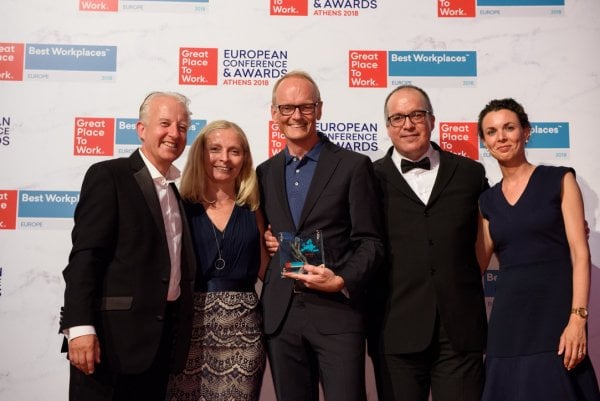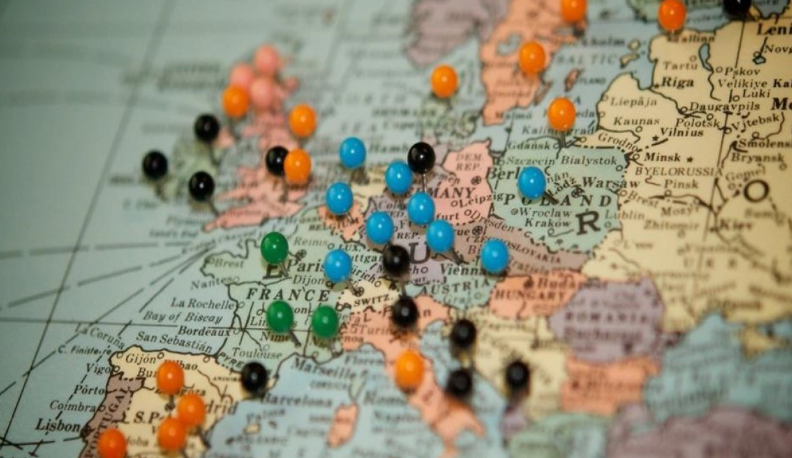INTERVIEW
Liselotte Jensen
Managing Director, Great Place To Work® Denmark
In the 2018 list of European Best Workplaces™, 56 were Scandinavian. Among them, 19 Danish companies have been singled out. We interviewed Liselotte Jensen, managing director at GPTW Denmark, to understand the factors underneath such success.
Denmark, as well as other Scandinavian countries, is famous for the quality of work life in its companies. How do you explain that?
I think that the high number of Danish and Scandinavian companies on the European list can be partially explained by culture. In a way, it’s in our DNA, because it’s rooted in our history and culture. There is a Dutch sociologist called Geert Hofstede, who studied cultures worldwide; in this very large study, he notably measured one parameter which he called “power distance”. He found out that in Danish and Scandinavian countries, the power distance in culture and organizations is very small. And indeed, Scandinavia is known for very flat organizational structures.
We have a long tradition for that. Studies show that it may be linked to religion, because Scandinavians are protestants, with a direct line to God – whereas in catholic countries, you have a mediation. That’s one explanation.
Another element is the great influence on Danish culture of the priest and poet Grundtvig, who thought that peasants and farmers should be educated, in order to shape their own lives and free themselves. He actually managed to establish a « folks’ high school » all over the country. So, very early (in comparison to other countries), Denmark had a very well-educated population. It was one of the first countries in the world where famers had a role to play and took part in the government’s decisions. They did it already from 1901, when the first, truly democratically elected Danish government was formed. This has contributed to a very egalitarian country where everybody has a say and where respect, understanding and inclusion are prioritized over hierarchy. There was another side effect to this: because people were educated, they were not looked down at. I believe that today, we have one of the most egalitarian countries in the world.
Finally, there’s a very high degree of trust in Denmark. Here, you trust people enough to leave your sleeping baby in a pram outside a café, or to just leave a box for people to leave the money near the apples and potatoes you are selling. It’s not a myth: it’s reality. A contemporary Danish author, Gert Tinggaard Svendsen links the high degree of trust to the well-functioning welfare system.
How does this culture of equality and trust reflect in the workplace?
Somehow the Great Place To Work® model perfectly matches with our vision and culture. Danish companies are characterized by a very flat organizational structures, but also the tradition of asking people for their advice. Managers often ask employees: ”what do you think ? Do you have any idea how to improve this?”. In Danish companies, the most important role of a manager is to create the frame for employees to succeed. Of course, they also determine goals for employees: but employees have a role to play, they know better and should have their say on what is realistic to accomplish for them.
Can’t trust be misused?
I wouldn’t guarantee that it can’t, but I believe that most people want to succeed, flourish and be good at what they do: and as a manager, you should trust them for that. If there was any danger that I can think of, it would be managers forgetting their own responsibilities and leaving everything to employees. But my advice is: trust people to do their best without looking over their shoulder!
Is Denmark more egalitarian than other countries for women in the workplace?
For a very long time, we’ve had an excellent kindergarten system which has enabled women to be on the labour market very early. Nevertheless, there are still a lot of progress to be made, even in Denmark, regarding the number of women on boards. I think there are myths about what it takes to be in a board, for instance that board meetings take place after work. But I’m in a board myself and we hold our meetings during the workday.

Liselotte Jensen, seconda da sinistra, alla cerimonia Best Workplaces™ Europe 2018 (Atene)

